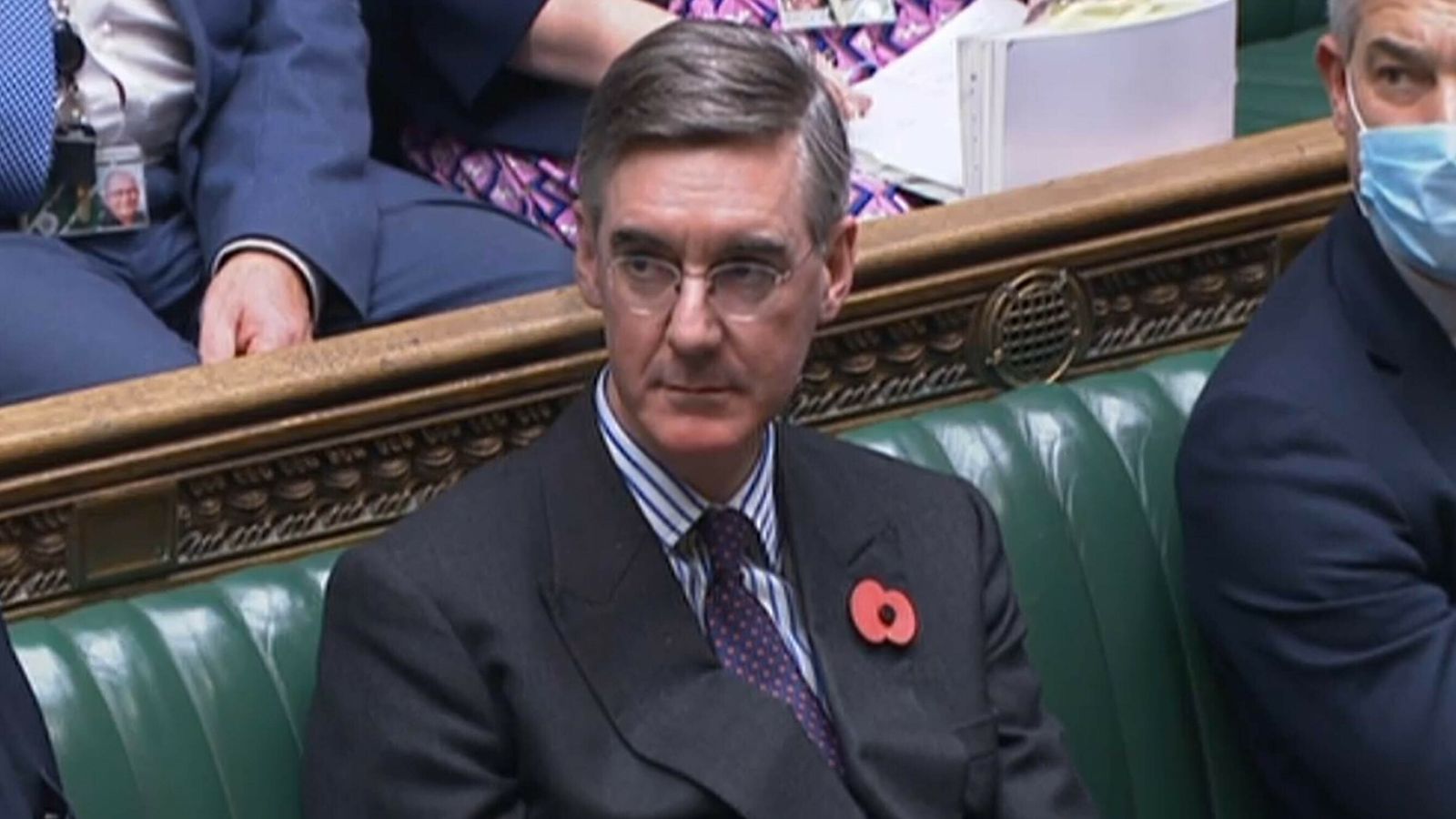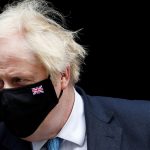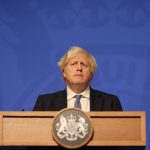Jacob Rees-Mogg has admitted the government made “a mistake” defending Owen Paterson after he breached MPs’ lobbying rules as the government completed its U-turn on controversial plans to reform parliament’s standards committee.
The Commons leader said he encouraged Prime Minister Boris Johnson to back an amendment calling for a new standards committee to be set up to develop plans for a new appeals system as he “felt that Owen had been punished enough by the death of his wife”.
Addressing MPs on Tuesday, Mr Rees-Mogg added: “It was simply the tragedy that afflicted Mr Paterson coloured and clouded our judgement – and my judgement – incorrectly. And it is as simple and as sad as that.”
Former prime minister Theresa May criticised the government’s attempt to tear up the rules to help a colleague.
“The attempt by right honourable and honourable members of this house, aided and abetted by the government under cover of reform of the process – effectively to clear his name – was misplaced, ill-judged and just plain wrong,” Mrs May told the Commons.
Mrs May said “damage has been done to all MPs and parliament as a whole”, adding: “It would be a mistake to think that because someone broke the rules, the rules were wrong.”
Tuesday’s Commons debate came as the government successfully carried out a U-turn over the Owen Paterson row through a fresh motion in the Commons which MPs nodded through without a vote.
Owen Paterson: What is lobbying, which MPs have second jobs and how much do they earn from them?
Owen Paterson: Labour leader Sir Keir Starmer accuses Boris Johnson’s government of ‘corruption’ after vote to protect MP from being suspended
Rob Roberts: Disgraced MP suspended for sexually harassing staff member is readmitted to Conservative Party
Earlier this month, Conservative MPs were given a three-line whip to support the amendment, tabled by former cabinet minister Andrea Leadsom.
It called for Tory ex-minister Mr Paterson to be saved from a 30-day suspension from the House of Commons, as well as for a new Conservative-dominated committee to be created to rethink parliament’s disciplinary processes.
However, only 250 MPs backed the proposal and opposition MPs vowed to boycott the committee before Mr Rees-Mogg announced a U-turn, saying any reforms to the standards system would need cross-party support.
Subscribe to the All Out Politics podcast on Apple Podcasts, Google Podcasts, Spotify, Spreaker
MPs also chose not to back the cross-party standards committee’s call for a six-week ban from parliament for Mr Paterson for breaking lobbying rules, but hours later he resigned as an MP saying the situation had become too much for his family.
Despite Mr Paterson’s resignation as MP for North Shropshire, through the new motion, members endorsed the finding that he broke Commons rules by repeatedly lobbying ministers and officials on behalf of two firms which he worked for as a paid consultant.
Earlier this month, Chancellor of the Duchy of Lancaster Steve Barclay, at the despatch box in lieu of the prime minister, admitted the government “made a mistake” over the issue.
Please use Chrome browser for a more accessible video player
And introducing the new motion in the Commons on Tuesday, Mr Rees-Mogg said: “The backbench amendment we supported was intending to facilitate the exploration on a cross-party basis of the standards system with a time-limited, ad-hoc committee.
“However, I regret that the amendment conflated an individual case with more general concerns. That was a mistake.
“Crucially, the amendment did not carry cross-party support, and that is why we have changed our approach.”
Speaking in Conservative Home’s podcast ‘Moggcast’ before the debate, the Commons leader said: “I must take my share of responsibility for this.
“I thought it was the right thing to do. I encouraged the prime minister to go down this route, and I was wrong. I made a mistake.
“The question is why did I make this mistake, which in hindsight looks a really obvious mistake to have made.
“It’s because there was a conflation between elements of the process which were difficult – the time taken being one of them – and the personal, and the personal overwhelmingly was the death of Rose [Paterson].
“I felt that Owen had been punished enough by the death of his wife and therefore allowed this conflation to take place in my mind.
“And that was clearly a mistake. It was not seen by the electorate as being merciful, it was seen as being self-serving, and that has not been helpful to the government or to parliament.”
Shadow Commons leader Thangam Debbonaire called on Mr Rees-Mogg to apologise to MPs for the damage done to parliament on the basis of the government’s actions, telling the Commons: “Standards matter. Scrutiny matters. An independent system of holding everyone in public life to account matters.”
Please use Chrome browser for a more accessible video player
At the time of the announcement of the government U-turn, some Tory MPs said Mr Barclay’s words did not go far enough, with former chief whip Mark Harper calling on Mr Johnson to make a formal apology.
While the PM has refused to apologise for the situation, he has said it is “very important” to get the standards system right.
At a Downing Street news conference on Sunday, Mr Johnson acknowledged he could have handled the situation better.
“Of course, I think things could certainly have been handled better, let me put it that way, by me,” he said.
But speaking to reporters during a visit to a medical centre in Forest Gate, east London on Monday, the PM refused to be drawn on the continuing row over MPs’ standards.
Addressing the lack of an apology in the podcast episode, Mr Rees-Mogg says “the issue of an apology is always one of sincerity”.
The government had quietly attempted to endorse the Commons standards watchdog’s report on Mr Paterson’s “egregious” breach of lobbying rules on Monday evening.
But this proved unsuccessful after veteran Conservative Sir Christopher Chope objected to the move.
The MP for Christchurch has previously used the move to block other Commons motions, defending his actions by saying measures should be debated rather than simply going through unopposed.
Opposition MPs described the scenes in the Commons on Monday evening as a “total farce”.
Speaking in the Commons on Tuesday, Sir Christopher said he has “no regrets” about delaying the Westminster sleaze debate the day before.
Meanwhile, all the former living cabinet secretaries have signed a letter to the prime minister urging him to strengthen the role of the independent adviser on ministers’ interests and the commissioner for public appointments.
The signatories, including Lord Sedwill – who left the civil service only last year – said “we need all in positions of trust to set an example”.
Their letter added that the ministerial code “must be strictly enforced”.






















